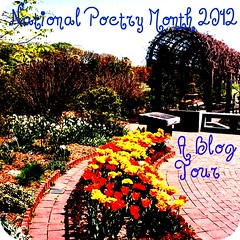
, Death as a Way of Life by Roger A. Caras
, The Human Machine by Arnold Bennett, and In Search of Wealth by Cyril S. Belshaw
— from the twentieth century that the poet discovered in a used bookshop in South Kortright, New York. The poems share the same titles as the books, and the title of the collection makes its appearance in the first poem.
Moschovakis makes a great many assumptions about the readers knowledge of the industrial revolution and their understanding of economics. First she compares the lake to supply and the men and women entering the wood and approaching the lake as demand, but later, the lake becomes more ambiguous. From the cycles of supply and demand in the markets and the growth of the workforce to the incessant bombardment of advertising, the narrator of the poem is questioning the capitalistic ways of society and whether those are not wasteful in terms of time and energy spent. She also postulates that we are no different from nature in how we react to available resources, which begs the question just how civilized are we when we succumb to our basest instincts to use everything around us?
From "The Tragedy of Waste (page 27) Behind the desk there is a window A woodpecker is attacking the house The sun is attacking the snow on the pavement Everything helping itself to everything else
From "The Tragedy of Waste" (page 30) dwarfed and shadowed by mighty buildings subway trains wild as elephants One goes blindly back to one's desk
In the second poem, death as a way of life is broken down into how it affects “the Other” and not necessarily the surface theory that death is merely a part of the life cycle. In many ways this poem is about the necessity to kill and the pleasure in killing, and where are the lines to be drawn between animals and humans being killed or something more refined. There also is speculation about what rights we have as humans to kill and is naming the “Other” just as violent as not naming it? “I want to know about the ‘other birds’//Were they species unknown to the hunters/or insignificant birds not worth noting by name/or mutilated/beyond recognition/”
“The Human Machine (Thirty Chances)” poem is a bit repetitive and generates a sci-fi-like quality as chatbots talk to human machines. Readers are likely to find this poem the most puzzling, though ultimately a kernel of understanding will emerge about the “people” we believe we are and who we actually are — in that we all have failings and do fail ourselves and others. But it also touches upon what makes us truly human — an ability to empathize, which could mean that should a robot be able to do so, we would have to consider it a person worthy of saving and no longer “Other.”
“In Search of Wealth” is the final poem before the epilogue. In this poem there are digs at a variety of religions, including Scientology and its ties to Hollywood’s elite, and there are ramblings on pay inequality that seem to go on incessantly. In the collection, this poem seems to be more of a rambling and a rant then a well crafted argument. If it were issued forth in a debate on wealth and capitalism, listeners would likely begin throwing rotten tomatoes if they had any in their pockets for the occasion. The prologue sets up the collection to be poems that take up certain positions on the topics at hand, and while by all accounts they do, some are more well crafted than others. The epilogue goes further to explain that the reason to take a position is to generate disagreement, which is closely linked with desire and ensures that life is anything but boring.
You and Three Others Are Approaching a Lake by Anna Moschovakis touches on themes of wealth, “otherness,” conviction, and a host of other topics, but without having read the books mentioned in the acknowledgements, some of the references may be lost or misunderstood.
Poet Anna Moschovakis
About the Poet:
Anna Moschovakis is the author of two books of poems, I Have Not Been Able to Get Through to Everyone (Turtle Point Press 2006) and You and Three Others Are Approaching a Lake (Coffee House Press 2011) and of several chapbooks, including The Blue Book (Phylum Press), Dependence Day Parade (Sisyphus), No Medea (a Tinyside from Big Game Books), The Tragedy of Waste (Belladonna) and The Human Machine (Dusie). Her translations from the French include texts by Henri Michaux, Claude Cahun, Theophile Gauthier, Pierre Alféri, and Blaise Cendrars, as well as the books The Jokers by Albert Cossery (New York Review Books), The Possession by Annie Ernaux (Seven Stories Press), and The Engagement by Georges Simenon (New York Review Books).
Currently a freelance editor and a visiting professor in the Writing department at Pratt Institute, she splits her time between Brooklyn and Delaware County, NY. Anna has been working with UDP since 2002 as an editor, designer, administrator, and printer.
***For today’s National Poetry Month Blog Tour stop, visit Caribousmom.
This is my 32nd book for the 2012 New Authors Challenge.
This is the 14th book for my 2012 Fearless Poetry Exploration Reading Challenge.







